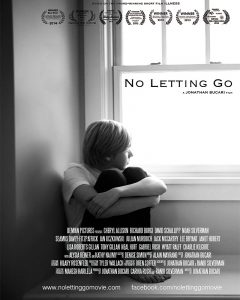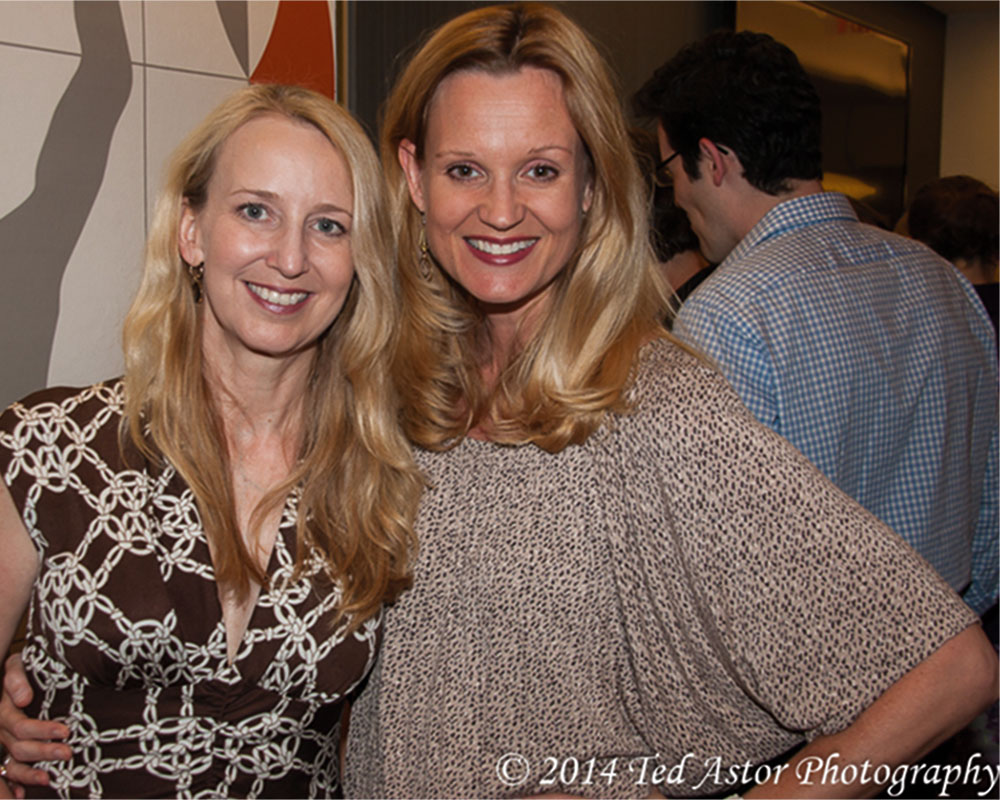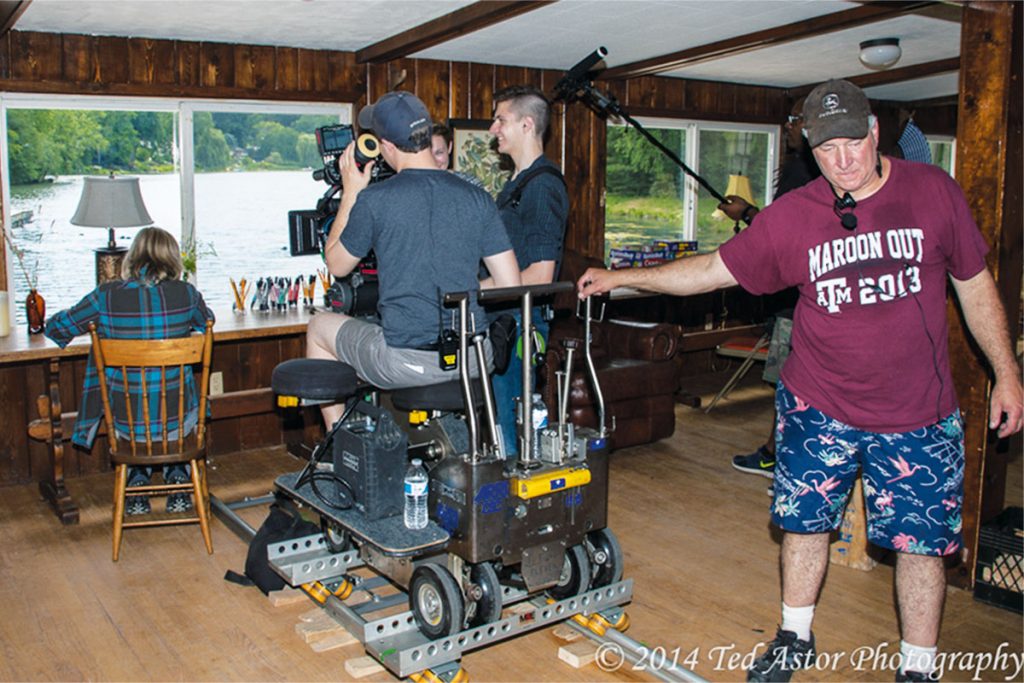
Sitting at a café recently, enjoying my coffee and cake, I watched a woman lean in close to her friend. Fearful that even saying the word could be contagious, she murmured, ‘he’s crazy, proper, on medication, crazy.’
Speaking with Randi Silverman, the Producer/Writer of the new film No Letting Go, I was reminded that it wasn’t so long ago that cancer was the other, unspoken c-word. As a mental health activist and cancer survivor, she explained that through open and destigmatised discussion about mental health, a difference can be made. That’s what the film No Letting Go is aiming to achieve.
BMH: Hi Randi. Let’s start with you. You trained and worked as a lawyer, you’re a mother, and now a producer of a soon to be released major film. How does that happen?
Randi: I set out to be an attorney and a mom, but I didn’t start out with the intention of making a film. I believe good things happen when you embrace the challenges that face you. Because of my family’s personal experience with mental illness, I have been a volunteer mental health advocate for the past 7 years.
A friend of mine, Carina Rush, was producing a short film called Illness and she asked me to look over the script. Ultimately, I became an advisor and associate producer of that film and worked with them on making the script accurate and realistic. It was a film about a family with a child who had mental health issues and it really hit home for me.
Jonathan Bucari, the director and writer of Illness, wanted to make a film, not about, but in response to the Sandy Hook Incident. It was a terrible tragedy where a gunman opened fire in an elementary school, fatally shooting twenty young children and 6 staff. Illness explored the idea of families with children who suffered from mental health issues, but it was not about the shooting itself.
BMH: What was your interest in mental health?
Randi: One of my three sons was diagnosed with anxiety, depression and Bipolar Disorder at a very young age. He was ill for many years and it was a devastating period for my family. We were extremely isolated and had very little support from our community.
As I learned more about childhood mental illness and as he became more stable, I decided that I needed to help other families. I started a support group about three years ago and over 400 families have come through the group. I now know that 1 in 5 children suffer from a diagnosable mental health problem and that there are millions of families out there just like mine.
1 in 5 children suffer from a diagnosable mental health problem
BMH: Your youngest son, Noah, starred in the short film, Illness?
Randi: That was more of an accident. Four days before filming commenced, a local paper reported that we were making a film about the Sandy Hook Incident. It didn’t matter that we weren’t. The mother of the intended lead pulled out and we lost the filming location.
We asked Noah whether he would consider the role and he said “Mom, this is an important story. We have to tell it!” He agreed to play the part of Tim and I found a new location. It was all very fortunate.

Writer/Producer of No Letting Go, Randi Silverman with Actor Cheryl Allison, who won Best Actress for her role in Illness. Image courtesy of Ted Astor Photography
BMH: How did a thirteen minute short film turn into a full length feature film?
Randi: Illness was a snapshot only and easily taken out of context without the broader family issues and impact addressed. And yet, it received over 20 nominations and won 7 awards worldwide in film festivals. People would surround us and thank us for making such a powerful film; they wanted to know more.
While the short film was a great way to start a conversation, we knew we could make a bigger impact if we could tell a broader story of what it’s like to have a child who suffers from mental illness. So Jonathan, Carina and I decided to make a full length film, which is No Letting Go. I co-wrote the screenplay with Jonathan and Carina helped keep us moving. She also helped cut it back from what could easily have been a four hour film.
BMH: How did Eli feel about Noah playing a character based on him?
Randi: Noah knows what it’s like to live with someone with a mental illness. He lived through it. There were times when Eli was not well that we would lock Noah in another room to keep him safe from Eli’s violent episodes. Eli said that the film was important and he wanted Noah to play the role because he knew he could do so honestly. He was incredibly supportive.
BMH: What was it like working with Jonathan and the rest of the crew?
Randi: It was incredibly exciting to have an opportunity to work on a film set. Jonathan is a young, up and coming and very talented director. He brought in other incredibly talented people. There were 36 crew members, each better than the last. This was an ultra-low budget, independent film. We were extremely lucky to be able to get talented actors, who joined the cast because they loved the script and believed in the film.
BMH: Tell us more about Eli.
Randi: Eli has Bipolar II Disorder. It started with anxiety and led to depression. At around ten, he became very depressed. He was an antidepressants and anti‑anxiety medication, which triggered his bipolar, then extreme irritability and then anger.
BMH: And your oldest son, Max, how does he fit into it all?
Randi: Eli has Bipolar II Disorder. It started with anxiety and led to depression. When he was nine he became very depressed. He was on antidepressants and anti‑anxiety medication, which triggered his bipolar symptoms, which included extreme irritability and anger.
BMH: And your oldest son, Max, how does he fit into it all?
Randi: Max and Eli were very close when they were little, and it hurt Max to see his brother withdraw. He was angry at us, his parents, for not handling Eli properly. It took a lot of talk therapy and teaching the kids that mental illness is like any other illness and it’s no-one’s fault. It took time, but he eventually understood and he’s been very supportive.
BMH: How did you feel about Max blaming you?
Randi: Everyone blames the parents. Eli is 18 now, but when he was first diagnosed nine years ago, people did not talk about mental health issues in children. That silence made it far more difficult. It’s impossible to ‘fix’ a problem that you don’t know can exist.
When a child’s behavior is not “typical” there is an assumption that the cause is bad parenting. I blamed myself for a long time, as well, until I learned more about mental illness. Anyway, Max was only a child, too, and so it was natural for him to feel angry.
BMH: But you didn’t just leave it there, as a parenting issue. How did you know there was more to it?
Randi: I knew something wasn’t right. He was a very happy little boy until around seven or eight years old. He became afraid to go outside or get on the bus for school, so I met with the school’s psychologist to get some advice.
The psychologist observed him and told me that he was okay at school. She suggested that I was the one who was anxious and that I needed to get help. But when my nine year old son said he was so miserable that he wanted to die, I knew something more serious was going on.
I knew something wasn’t right… he became afraid to go outside
BMH: How do you know the difference?
Randi: You look at how they’re functioning. Can your child function — at home, school, socially — if your child isn’t functioning well in any one of those spheres, something isn’t right. Eli stopped playing with friends, he quit activities, and wouldn’t go to school. His behavior became so difficult and unpredictable that we couldn’t go out as family anymore. When your child is unable to function properly for his age, either in school, at home or with friends, on a somewhat regular basis, it’s time to seek help. I also encourage parents to listen to their gut.
BMH: People assume that children who have mental illness must come from an abusive family or experience trauma. What do you say to that?
Randi: That’s why the film is so important. I want to make it clear that there doesn’t have to be a reason for a child to have a mental illness. It can just happen, to anyone, for no apparent reason whatsoever. Eli came from a very loving, very supportive and stable home in a safe suburban neighborhood. His father and I are well-educated and I was lucky to be able to stay at home fulltime with the kids.
I haven’t seen any other films like this, where a young child suffers from mental illness and there is no obvious trigger.
Film is very powerful. A documentary is informative, but it’s for people already with an interest. A drama is engaging and people can relate to it. So it’s important that the film was made.
BMH: And through this, life went on as a family. In the film, the mother is diagnosed with cancer.
Randi: It really happened; I am a breast cancer survivor. In fact, I was diagnosed when Eli was in his second year at a residential treatment facility.
BMH: How are you now?
Randi: I’m okay now. I’m grateful for all the attention that breast cancer has received, in funding and research, or I may not be here. But it wasn’t so long ago that having cancer was very stigmatizing; we didn’t mention the “C” word. We said someone was sick, but never that they had cancer. Now, thanks to all the cancer activists, we see pink ribbons everywhere, and we’re not afraid to talk about it. The stigma around cancer isn’t there and lives are being saved because of it.
That’s what we need to achieve with mental illness. There’s still the stigma. We still don’t talk about it. And lives are lost to it. We hope films like this will get people taking, and reduce the stigma and increase the research and improve lives.

On the set of No Letting Go. Having lived through the experience, Eli’s younger brother, Noah, has the perfect experience to bring something special to the lead role. Image courtesy of Ted Astor Photography.
BMH: Unfortunately, we can’t talk with Eli. Why is that?
Randi: Right now he’s crossing the Atlantic, somewhere on his way between South Africa and Brazil. There was a time when we weren’t sure he would even finish school. But he did. He’s on a gap year program, with 22 students on a 122 foot sailing boat crossing the Atlantic. It’s a 90 day voyage and he’s taking classes and doing really well. He’s a fantastic young man.
BMH: Are you happy with the film?
Randi: Extremely! It’s so much better than I could have ever anticipated. We had a small private screening last week and people were sobbing.
It’s such a high quality film and the production value is incredible. We’re really proud of it.
BMH: What’s next?
Randi: Our focus is getting attention at film festivals all over the world. This isn’t a big Hollywood production, so the film festivals are an important way to get distribution. We feel it’s an important and powerful film and hope that ultimately we will find a distributor who is willing to get this film to as many viewers as possible. Our goal is to promote awareness and greater understanding of mental disorders and let families who suffer know that they are not alone.
BMH: Thank you, Randi.
For more information about the film No Letting Go, visit http://nolettinggomovie.com. If you would like to know more about Bipolar Disorder, visit the International Bipolar Foundation website at http://ibpf.org.
